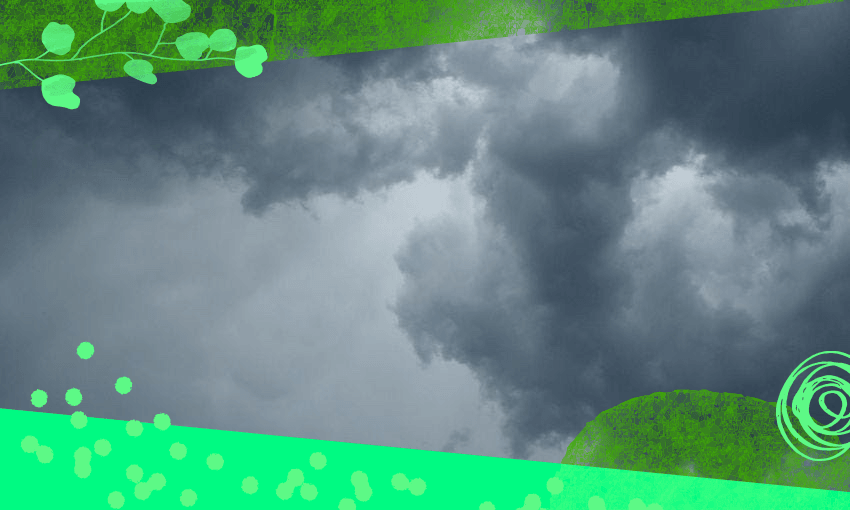This year’s severe weather events have changed the way some of us react to the sound of raindrops on the roof.
This is an excerpt from our weekly environmental newsletter Future Proof, brought to you by AMP. Sign up here.
The tall pine tree, anchored in a bank next to the road, had begun to tilt sometime in the summer. This past weekend, as the tail of ex-tropical cyclone Lola lashed my windows, I wondered whether the tree might finally succumb. Would it fall and block my only road out? I wondered when (not if) the power would go out.
The power went out that evening at 7pm. The tree is still standing, but leaning ever more precariously to the asphalt.
“Rain anxiety” has emerged as a feature of many lives this year. What was once a soothing sound – rain on the roof – now induces worry and panic. I can’t imagine what people in Vanuatu must be feeling after their third cyclone of 2023.
Here in New Zealand, it doesn’t help that between the destructive downpours, the weather has remained persistently soggy with little sunshine. My little corner of the motu received a year’s worth of rain in the first six months of 2023.
Even if the shift to El Niño brings drier conditions to waterlogged places, the rain isn’t going away. Some parts of the country – the south and west, in particular – could see above average rain under El Niño. Plus, the emergence of Cyclone Lola, the earliest ever recorded cyclone in the Southern Hemisphere, is one symptom of how wack our weather is getting. So how can you deal with the feels the rain evokes?
A raft of articles on rain anxiety have appeared this year, offering advice. Taciano Milfont, a professor of environmental psychology, told Re:News that taking practical action, like making an emergency plan, can “bring some certainty” and a sense of control. He also recommends sharing your feelings with others.
For coping with persistent gloomy weather, clinical psychologist Dougal Sutherland suggests that people should “make the most of a damp situation”. Embrace the Danish concept of hygge: cosying up next to a fire with a hot cuppa and a good book, or a movie marathon. “It’s about accepting that at times we won’t be able to control the other, but we might be able to choose how to respond to it,” he told RNZ.
Clinical psychologist Jackie Feather recommended a three-step approach in this article by Shanti Mathias. Step one: sit with your emotions – notice them in a non-judging way. Step two: be present and mindful of your body and your surroundings. Step three: taking actions that renew your sense of agency and connection.
In my head, eco-anxiety is future-focused, a deep worry about the uncertainty of what’s to come in a changing climate. But anxiety about rain is a response to events happening to us now. In any case, maybe there’s a silver lining to all this worry: in a recent New York Times article, one psychologist envisages “psychological adaptation as a form of climate mitigation, not so different from sea walls”. Perhaps we can find a way to channel that nervous energy away from the rain, and into action and creativity.


